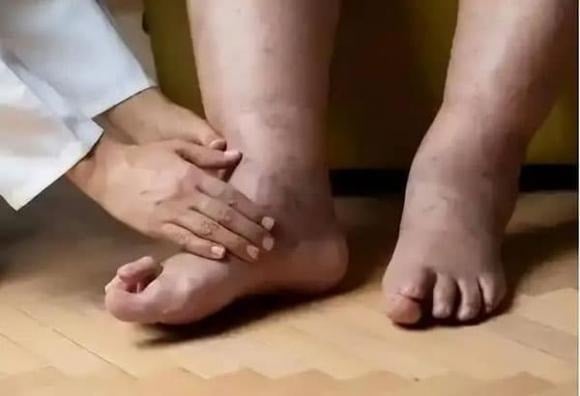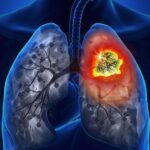Sudden Chest Pain While Asleep
Being awakened by a sudden, intense chest pain in the middle of the night can be a frightening experience. Surprisingly, many people may not recognize this as a dangerous sign. In fact, sudden chest pain can be indicative of a blood clot, particularly pulmonary embolism.
Pulmonary embolism occurs when a blood clot travels from the leg to the lungs, obstructing the oxygen flow in the body. If left untreated, it can lead to breathing difficulties and become life-threatening. The pain often intensifies with deep breathing and may be accompanied by feelings of anxiety.

Nighttime Leg Pain
It is common for people to attribute leg pain at night to overexertion during the day. However, if this occurs frequently and is accompanied by leg cramps or spasms, it could be a sign of deep vein thrombosis (DVT).
DVT occurs when a blood clot forms in the leg veins, obstructing blood flow back to the heart. Prolonged immobility, such as maintaining the same sleeping position for extended periods, can cause blood to stagnate and form clots. Pain from a blood clot is typically persistent and may be accompanied by warmth or discoloration of the leg.

Sudden Headache While Asleep
It is easy to blame a sudden headache while sleeping on a cold draft or fatigue from a stressful day. Nonetheless, if the headache is abrupt and intense, it could signify a blood clot in the brain.
A brain blood clot, or cerebral venous thrombosis, can obstruct blood flow and lead to a stroke. Accompanying symptoms may include slurred speech, weakness in the arms or legs, confusion, or paralysis on one side of the body.
Unexplained Swelling or Pain
Should you experience unusual swelling or pain in any part of your body during sleep, do not ignore it! This is particularly important if it occurs in the legs or other extremities, especially after prolonged sitting. It could be a sign of deep vein thrombosis, impeding blood circulation and potentially leading to serious complications.
If you experience any abnormal symptoms during sleep, early diagnosis is crucial. Seek medical attention promptly to rule out the presence of blood clots and prevent potentially life-threatening consequences.
Understanding the Causes of Blood Clots
It is understandable to question why blood clots occur even in individuals with healthy lifestyles. In reality, blood clots can arise from a multitude of factors, including:
1. Endothelial Damage: Trauma to the inner lining of blood vessels due to high blood pressure, atherosclerosis, injury, or certain chemicals (such as chemotherapy or antibiotics) can expose underlying collagen, triggering the clotting process.
2. Abnormal Blood Flow: Prolonged immobility, whether from sitting, bed rest, or long-distance travel, increases the risk of blood stagnation and clot formation. Conversely, rapid blood flow can also cause vortices that damage vessels and lead to clotting.
3. Hypercoagulability: Elevated levels of platelets and clotting factors in the blood increase the likelihood of clot formation. Conditions like cancer, pregnancy, or oral contraceptive use can stimulate this process. Additionally, genetic disorders affecting coagulation, such as hemophilia, heighten the risk of blood clots.
4. Other Factors: Age, obesity, hormonal imbalances, smoking, and certain anticoagulant medications can also influence the formation of blood clots.
By understanding these causes, we can take proactive measures to protect our vascular health and reduce the risk of blood clots and their potentially severe consequences.






































